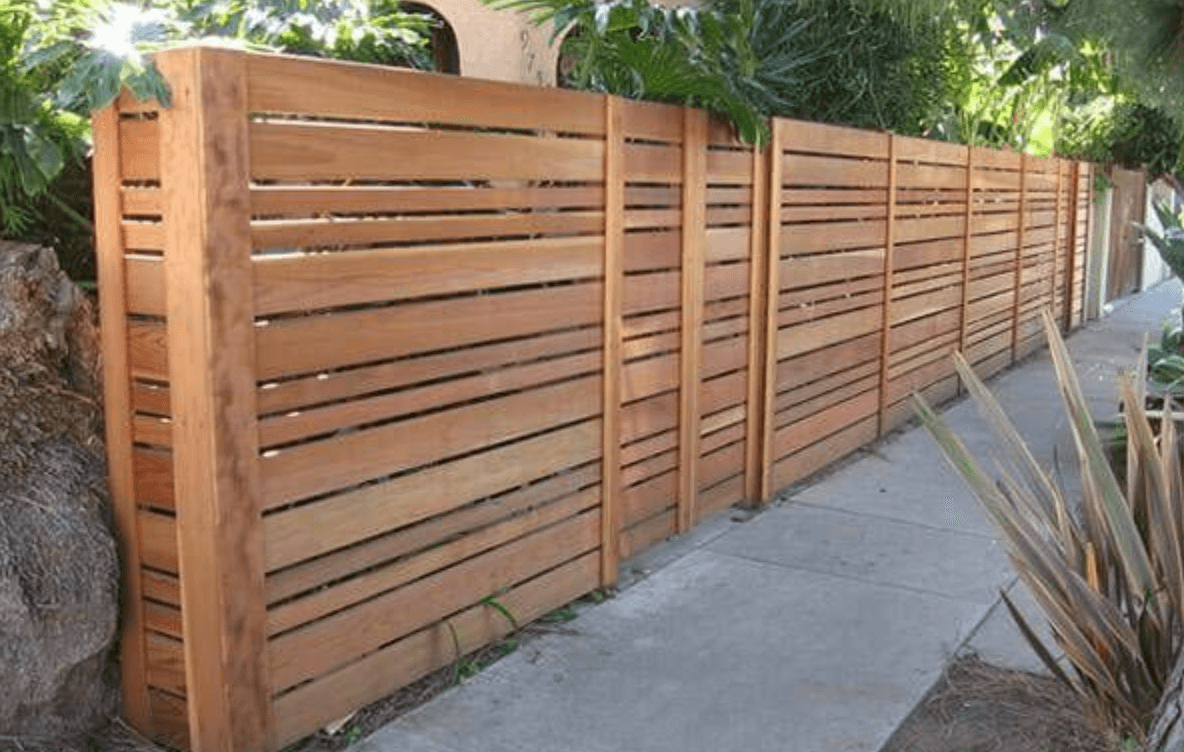All Categories
Featured

When it concerns picking the ideal fence product for your residential or commercial property, wood, plastic, and aluminum are amongst the most preferred options. Each product uses one-of-a-kind advantages that fit various needs, preferences, and spending plans. Understanding the benefits and drawbacks of each type can help you make an educated choice based upon your concerns, whether that's visual allure, toughness, or upkeep needs. Below, we damage down the benefits and negative aspects of these 3 typical fencing products.
Timber Fence. Pros:
Visual Appeal: Wood fencings provide a natural, traditional appearance that matches most kinds of landscape design and style. They can be quickly customized with paint or stain, giving you the flexibility to create the perfect shade and coating for your property. Adaptability: Wood can be used to develop a selection of fencing designs, from traditional picket fencings to a lot more modern-day layouts like personal privacy fencings or rustic ranch-style fencings. If your requirements alter, it's very easy to modify or add to over time. Price: Timber is usually much more budget-friendly than vinyl or light weight aluminum, making it an eye-catching option for property owners on a spending plan. The initial cost of a timber fence is usually less than the various other products. Disadvantages:

Maintenance Needs: Timber fences call for regular maintenance, including staining, securing, or paint to secure them from weathering, rot, and pest damages. Without correct treatment, timber can wear away swiftly. Sturdiness: Timber is susceptible to harm from parasites like termites, and it can warp, crack, or split gradually as a result of direct exposure to the elements. In locations with extreme weather, timber might need to be replaced extra frequently than various other products. Restricted Lifespan: While timber fences can last for several years with proper care, they normally have a shorter life expectancy than plastic or light weight aluminum fences. Vinyl Fence. Pros:
Reduced Maintenance: Among the greatest advantages of vinyl fence is its reduced maintenance requirements. Unlike timber, plastic doesn't require to be repainted, stained, or sealed. It's immune to fading, splitting, or bending, making it perfect for homeowners that desire a convenient fence. Resilience: Plastic fencings are immune and highly long lasting to the aspects, including UV rays, rainfall, and humidity. They're likewise unsusceptible bugs, such as termites, that can harm timber fencings. Variety of Styles: Vinyl fencings been available in a wide variety of styles and colors, and several simulate the appearance of wood without the upkeep disadvantages. You can select from privacy fencings, picket fences, and more to match your demands. Long Lifespan: With appropriate care, vinyl fencings can last years, much longer than wood fencings, and they come with service warranties that give assurance. Cons:
Greater Preliminary Price: While plastic fencings can conserve cash on upkeep throughout the years, they often tend to have a greater ahead of time cost than timber fences, which might be a deterrent for some purchasers. Limited Customization: While plastic fencings are readily available in a selection of colors and designs, they lack the customization flexibility that wood provides. You're restricted to the pre-designed panels offered, which could not match every unique visual. Potential for Cracking in Cold Climates: In extreme chilly temperature levels, plastic fencings can come to be brittle and may fracture under impact, making them much less suitable for areas with freezing winters months. Aluminum Fence. Pros:
Durability and Strength: Aluminum is a light-weight yet strong product that stands up to rust and rust, making it ideal for coastal areas or locations with high humidity. Aluminum fencings require marginal upkeep and can withstand the elements for several years. Aesthetic Allure: Light weight aluminum fences provide a smooth, modern-day look. They can be found in a selection of decorative designs and can be utilized to develop a much more classy or contemporary try to find your property. Reduced Maintenance: Light weight aluminum fencings do not call for paint or sealing, and they're resistant to rust and deterioration, making them extremely reduced upkeep with time. Protection: Light weight aluminum fencings give a higher degree of security compared to vinyl or timber fences due to their tough building. They can be outfitted with locks and gates to offer a safe border around your home. Disadvantages:

Cost: Light weight aluminum fences are commonly much more costly than timber or vinyl fences, both in terms of materials and installment costs. This greater cost factor can be a drawback for budget-conscious homeowners. Much Less Personal privacy: Aluminum fencings generally have a more open layout, with pickets spaced apart to enable presence via the fence. If personal privacy is a top priority, this might not be the most effective selection for your property. Prone to Denting: While light weight aluminum is rust-resistant, it can still be nicked or bent if struck with force, such as by a vehicle or hefty devices. While it will not rust, it could not maintain its excellent appearance if it gets harmed. Which Product is Right for You? Selecting the best fence material depends on your specific needs, budget, and lasting strategies for your residential or commercial property. On the various other hand, if you need a long-lasting, protected fence with a smooth appearance, aluminum may be the appropriate material for you.
Ultimately, consider your climate, upkeep preferences, and visual wishes when selecting your fencing material. Each alternative has its weaknesses and strengths, yet with the appropriate care and installment, all three can provide reputable and attractive limits for your building.
Latest Posts
Discover Limited-Time Auto Repair Specials in Chicago at Montclare Auto Repair
Published May 27, 25
1 min read
Secure Your Home with Top Quality Residential Roof Covering
Published May 26, 25
1 min read
Enhance Your Home with Expenses Door Solution
Published May 23, 25
1 min read